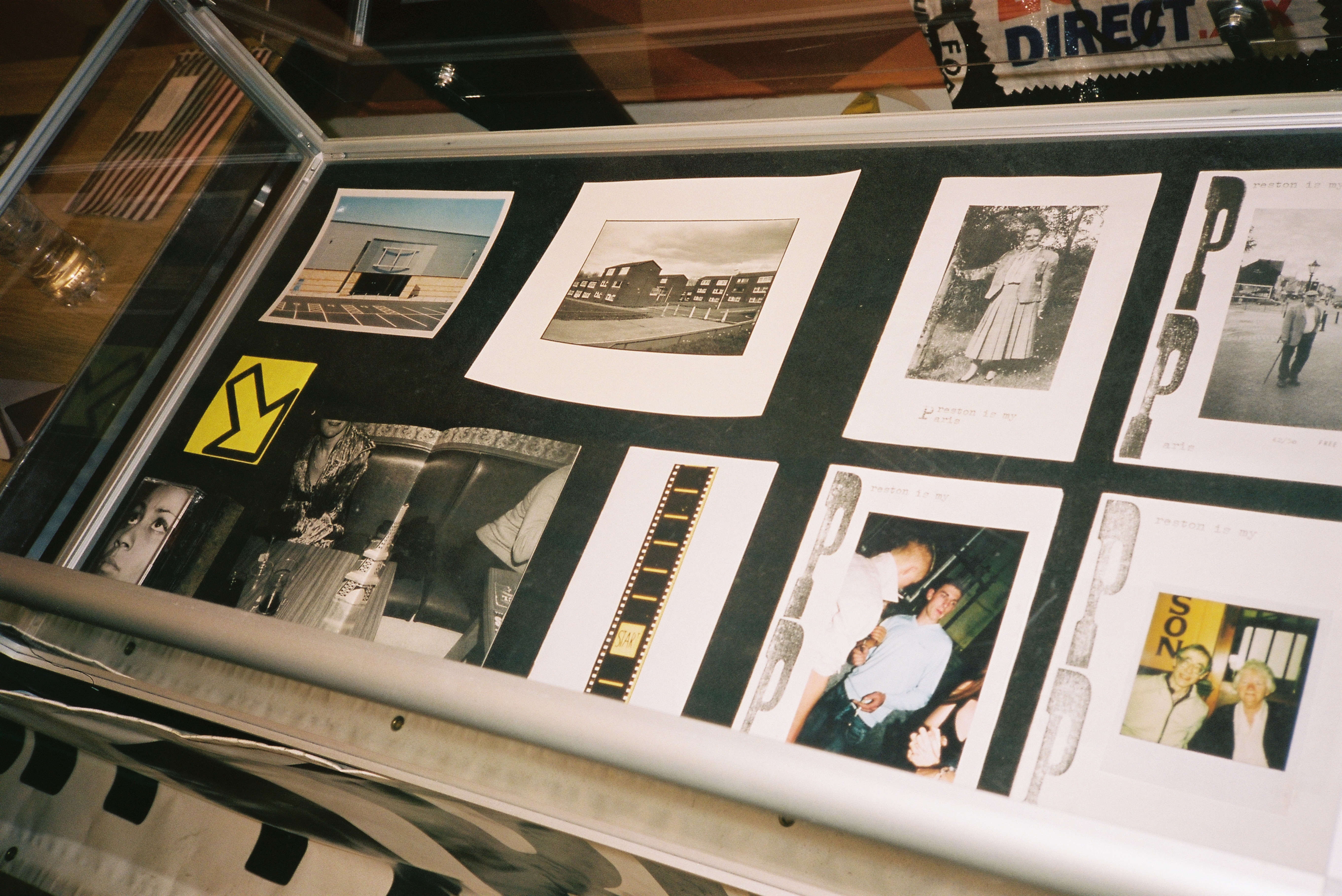Revolutionising Print: Bound Art Book Fair


Since launching in 2017, Bound Art Book Fair has become the leading event for arts and photography publishing outside of London, providing a platform for a diverse selection of artists and practitioners to share their work and reach new audiences. Exhibitors include artists and collectives, small presses, independent publishers, galleries and distributors who are committed to expanding the potential of publishing to communicate radical ideas and amplify underrepresented voices. We headed down to Bound 2019 to see what went down, following on from the event we chatted with two of the three co-founders Robert Parkinson and Lillian Wilkie to learn more about the event.

For those who don’t know, when did Bound first begin and how did the event come about?
RP: It started back in 2017 at the Whitworth where our main annual event happens but we have hosted a number of interim events around publishing and print in between those. It was basically born out of being frustrated about no decent self-publishing fairs being hosted outside of the capital. So instead of moaning we decided to do it ourselves.
LW: It’s also important to acknowledge the context out of which Bound emerged: there were major publishing fairs in London and Paris, and the key annual events for art publishing were the Printed Matter fairs in New York and LA. Most, if not all, of these weren’t accessible to smaller, regional artists and publishers due to the sheer costs of table fees and travel. Bound offered an opportunity to many people who previously hadn’t been able to do book fairs to share their practice, expand their networks, and make sales. With support from the Whitworth and now Arts Council England, we’re able to keep costs low whilst still providing a brilliant space and a top quality programme.
What were your main aims to achieve with the event?
RP: As with every Bound event we put on we aim to celebrate a series of artistic practices which predominantly revolve around print and publishing. We often expand this into performance, film and installation works which we like to intertwine between the stalls. Every year we like to introduce new publishers to the fair we haven’t seen before and instigate collaborative opportunities. Space Afrika’s performance accompanied with Bound 2019 exhibitor Amrit Randhawa’s (of Taxi Cab Industries) visuals was a highlight me while also showcasing what the fair is about.
LW: Every year we’ve had a loose theme which guides the programming and the various collaborations we instigate. Last year, notably, we were really interested in print as a political and pedagogical tool, and we worked closely with the Working Class Movement Library in Salford to create a new commission incorporating a performance and publication. It was really rewarding to be able to work with such an invaluable institution, and introduce new audiences to their collections and ethos. This year our thinking was shaped by ideas around youth culture and collective joy. Good book fairs have a palpable sense of community and shared experience, and we wanted to push that further. It’s always got a politics I guess, but in different manifestations and languages.
Can you give us any insight on what’s it like to organise a big event like this, what’s involved behind the scenes?
RP: Too much to say really! Lots of boring logistical, financial, health and safety bits but at the core of it the real exciting stuff. Inviting practitioners we are really into at the time with most of them accepting the invites! So its a great way to meet people you like at the moment. That on top of it being a fully collaborative process with us all, its really fun to see what comes together. Couldn’t recommend it enough to other people who are thinking about it.
LW: It’s a lot of work! We juggle it alongside full time careers, and we’re all based in different cities. We rely on each other’s flexibility, Skype, and Dropbox. Clear communication is so important. Working with a big institution like the Whitworth is really satisfying but also challenging; they have a really fragile and special permanent collection, so there’s always a conservation issue to grabble with. You learn to adapt. You also learn to listen carefully to exhibitor’s needs and try to develop creative solutions. When the Whitworth’s in house cafe refused to offer exhibitors a discount, we responded by raising funds to buy everyone a fry up at a local greasy spoon. You can’t solve everything, but you can try to make people happy in other ways. Again, it goes back to that sense of community building, too.
What’s next for Bound?
RP: Thats a big question! We are keen to do another fair, expand to some degree and really explore new territories that we are just touching the tip of the iceberg with at the moment. We are hoping to host one or two other interim events between now and the next fair. Publishing has always been on the cards… We shall see!
LW: It’s really crucial for us to maintain some kind of interim programme, to develop the profile of the fair as an initiative. This has included previous collaborations with Sounds from the Other City in Salford, and Format International Photography Festival in Derby. We’re interested in developing ways to help artists realise new work, promoting expanded forms of publishing and performance, and getting involved with education. We’d also like to foster stronger links with what’s going on in mainland Europe – Brexit is going to be really damaging to independent publishing. There are also a load of new, small, interesting fairs popping up across the continent, so we’re keen to get to know those too.
Keep up to date with Bound Art Book Fair here.
Our publications selection is curated by Village Bookstore Leeds and features culture and music focused titles alongside in-depth brand history and archive books from some of our most revered labels. Online now.




